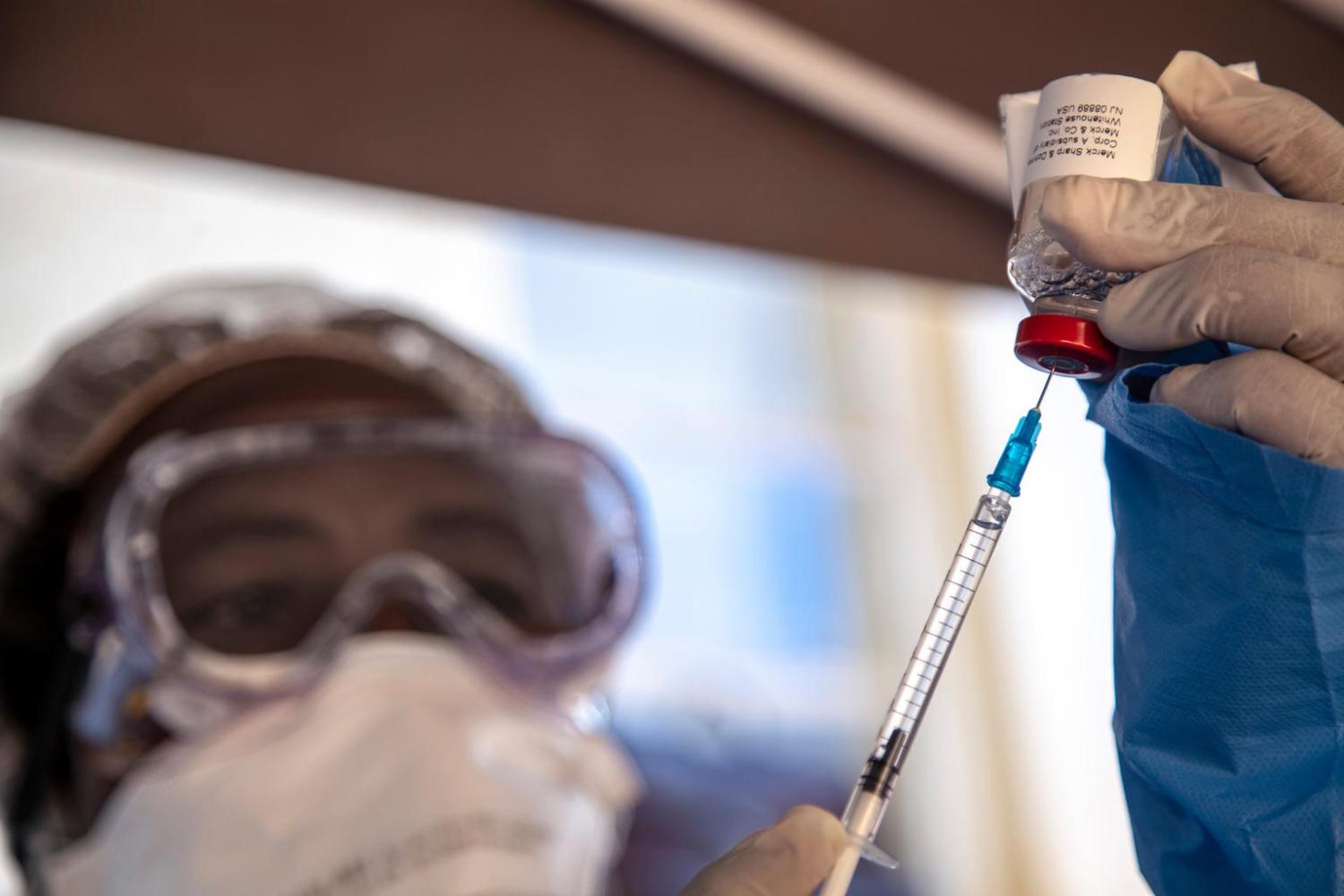Gavi, the Vaccine Alliance, today announced that it will create and fund an emergency Ebola vaccine stockpile, part of efforts meant to streamline the response to the next outbreak, as the Democratic Republic of the Congo (DRC) reported 5 new cases in the current outbreak.
The stockpiling plan was approved by Gavi's board, which met this week in New Delhi, India. In the middle of November, the World Health Organization (WHO) prequalified Merck's Ebola vaccine, VSV-EBOV, which came just a day after full approval by the European Commission. The WHO's action paved the way for United Nations agencies and Gavi to buy vaccine for stockpiling, and Gavi had signaled that it would take the issue up as part of long-term Ebola vaccine program at its December.
Gavi said it will open a new funding window with an investment of $178 million between now and 2025, which will allow low- and middle-income countries to get the vaccine free of charge. The stockpile will include 500,000 doses, the number recommended by the WHO Strategic Advisory Group of Experts (SAGE) on Immunizations.
In an announcement today, Gavi's chief executive officer Seth Berkley, MD, said the Ebola vaccine has been extraordinarily effective in tackling the DRC's outbreak, and the stockpiling plan demonstrates the Alliance at its best.
"Now that funding has been approved, we will get to work with manufacturers and our Alliance partners to build the stockpile," he said. "It will be critical for Gavi to secure enough funding for the 2021-2025 period to maintain this Ebola vaccine programme in order to protect people, health systems and economies that may be threatened by this devastating disease in the future."
Coordinating group to oversee stockpile
Among the other elements of the stockpiling plan, lower income countries that need to tap the supply will also receive support for operating immunization campaigns.
Wealthier countries will be able to access the stockpile, but will self-finance their supply. Gavi also said it would support preventive vaccination outside of outbreak settings of high-risk populations, such as health workers in at-risk countries, based on future recommendations from the WHO's SAGE group.
A coordination mechanism of partner organizations will be set up to decide how and when the vaccine stockpile will be deployed.
MSF: Positive step, but transparency key
In response to today's Gavi announcement, Jason Nickerson, PhD, humanitarian advisor with Doctors Without Borders (MSF), in a statement sent to journalists said the move is a positive step. He said an international coordinating group that will help manage the Ebola vaccine supply already manages emergency stockpiles of meningitis, cholera, and yellow fever vaccines.
He emphasized that the VSV-EBOV was developed by a public and philanthropic collaboration, not by Merck alone. "MSF calls for a thorough, independent, and transparent estimate of the costs of manufacturing the vaccine, to ensure that the price paid is fair and reasonable," he said.
MSF also called for complete transparency regarding the Ebola vaccine stockpile and said there's an urgent need to have a mechanism in place to pool national stockpiles when and if needed for future Ebola outbreaks.
Outbreak grows by 5 cases
In other developments, 5 more cases were reported in the DRC's Ebola outbreak, raising the total to 3,318, according to numbers reflected on the WHO's online Ebola dashboard. Outbreak responders are still investigating 319 suspected cases. So far, 2,204 deaths have been reported.
The DRC's Ebola technical committee (CMRE) said its daily report for yesterday that Ebola response activities are still at a standstill in Beni, Mangina, and Biakato due to recent security issues. It said health officials, including some from the WHO, visited Biakato yesterday, to assess conditions and meet with community leaders about the deadly attacks against Ebola responders.
DRC health officials assured the community that response teams will return gradually, with teams likely to work in the area during daylight hours and return to their homes at night, until security improves and the community's confidence is restored.
See also:
WHO online Ebola dashboard
Dec 5 CMRE update
Dec 5 Gavi statement



















